Disclosure: Meeple Mountain received a free copy of this product in exchange for an honest, unbiased review. This review is not intended to be an endorsement.
If Harry Potter primed me to love high fantasy as a youth, the Lord of the Rings movies pushed me right over the edge. I spent the summer I was 12 completely absorbed by Middle Earth Mania. I read The Hobbit and The Lord of the Rings in their entirety before Fellowship came out. I saw it twice. Maybe three times?
I wasn’t solely dedicated to the one brand to rule them all. I would spend hours in the fantasy section of the book store, looking at the spines. I thought about starting Terry Goodkind, but never made the leap. I read Harry Turtledove’s Wisdom of the Fox, which at the time was The Coolest Book I’d Ever Read. We’re all young once.
An appetite for high fantasy did not last long. Lord of the Rings aside, which I dutifully and fanatically followed to the end of its release cycle, the fascination mostly tamped itself out within a year of starting. Playing Oltree, a new cooperative storytelling game set in a realm of high fantasy, I found myself again and again imagining a world in which 12-year-old me sat down to play this game.
He would have lost his forking mind.
Satrapy (n.) A province governed by a local ruler
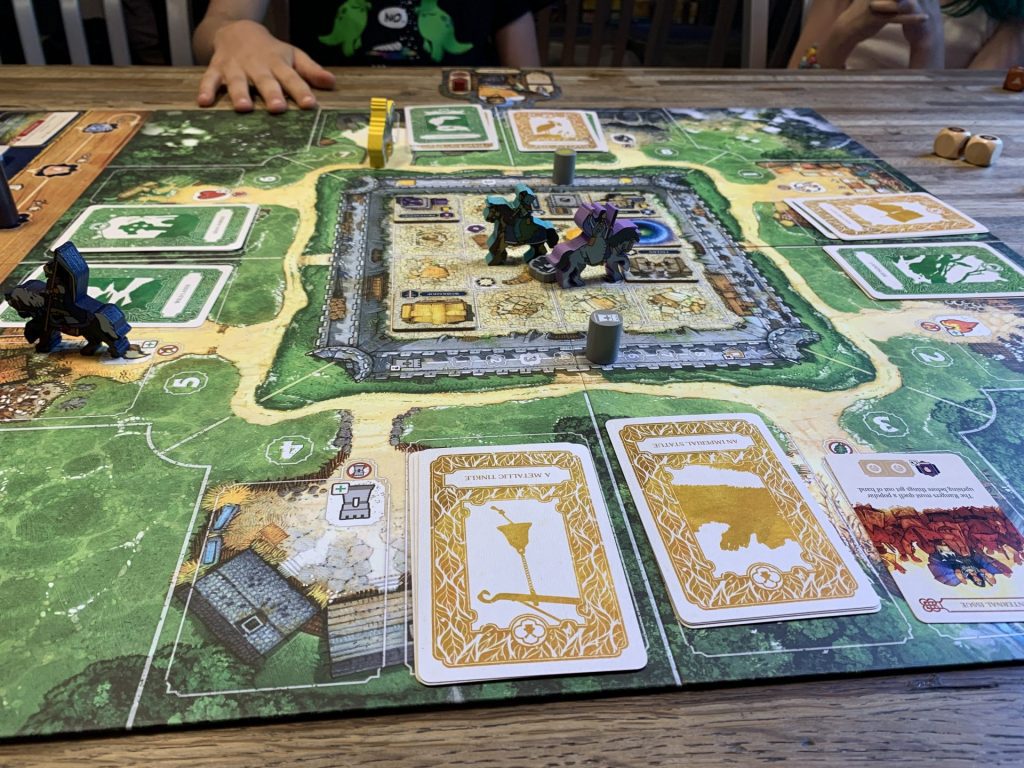
Oltree is a cooperative game where players control a team of Rangers in an unnamed satrapy, trying to maintain peace following the dissolution of the Empire. Your fortress, which makes up the center of the board, lies in ruin. By solving problems in the region and calling upon the assistance of the locals, you can rebuild both the physical fortress and its reputation.
Player turns are pretty simple. You roll a chunky die that advances—or doesn’t—the Adversity marker, which causes events (and Events) to occur throughout the kingdom. Whether advancing the Chronicle, placing Incidents or Problems, or triggering an Event, these are all low-fuss to execute. Now that I’m thinking about it, for the amount of components, this is a surprisingly unfiddly game.
With the Adversity marker resolved, the active player performs two different actions. For the most part, you’ll move, claim resources, build within the fortress, and address Problems or Incidents. Problems and Incidents are often resolved by rolling dice. The more Successes you roll, the better you’ll do.
Chronic
Oltree is not a deep well of strategic decisions. In fact, it’s almost achingly straightforward. With repeated plays, I found myself frustrated by the degree to which every turn’s sensible actions are more or less prescribed. Getting bogged down in that would be beside the point, though. This isn’t a puzzle, it’s a story.
I’ve reviewed story engines before. Siege of Runedar, which could be positively thrilling as a narrative experience, had too many gamey bits, and was too long by about half. Oltree is generally too long, but designers Antoine Bauza and John Grümph were wise to keep the mechanics as simple as possible. They stay out of your way.
The linchpin of the story experience is the Chronicle. During setup, players choose one of the six provided storybooks—all the better to expand you with, my dear—to provide an overarching structure to the game. Each time the Adversity marker completes a lap of its track, the Chronicle is advanced. The stories are charming, making good use of familiar fantasy tropes to add some flavor.
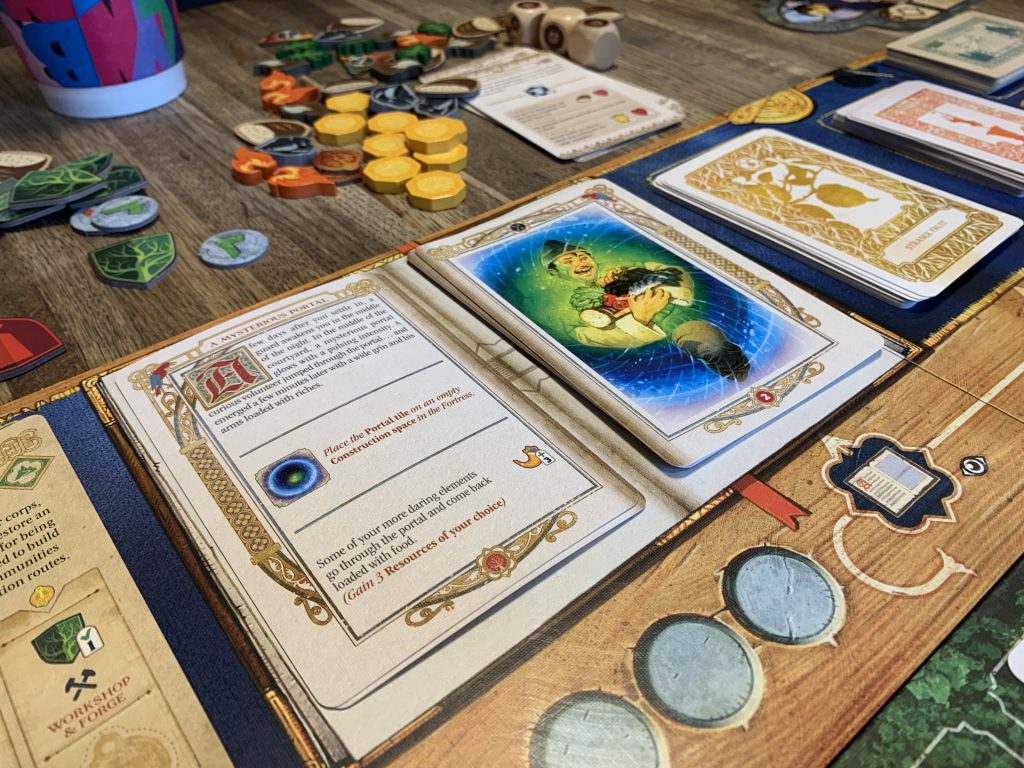
I would be remiss if I didn’t take time to compliment not only artist Vincent Dutrait’s qualitatively and quantitatively staggering work on this game, but the writing too. Narrative games often get tripped up by the storytelling, which tends to be amateurish. What amateurism exists in Oltree, and there is plenty, works somehow. The occasional odd translation choice seems to only add to the ambiance. While the Chronicle itself is mostly fine, I have been delighted by every Incident and Problem card. The text provides just enough information to get you involved while leaving enough space for your imagination to run wild.
There are moments of synergistic magic, as in the first game when a sequence of four cards created torrential rain, which turned into a lightning bolt, which then sparked a small fire that turned into a full forest fire. I want to stress that these were shuffled and randomized cards across multiple decks. They just happened to come out that way. Of course it was a coincidence, and of course it would be almost impossible to duplicate. In subsequent games, it hasn’t happened again. Still, it made the world feel incredibly alive.
Production Notes
I’m tempted to go back through all of my previous reviews and scrub out most if not all mentions of games having high production values. When I first opened the unexpectedly beefy Oltree box, I spent five minutes fawning over the components. I walked around the apartment showing the pieces to anyone who would listen.
“Look at these dice!,” I said of the beautifully veneered wooden dice.
“Look at these goods!,” I said of the wooden goods.
“Look at these Rangers!,” I said of the eight unexpectedly individuated wooden Ranger tokens.
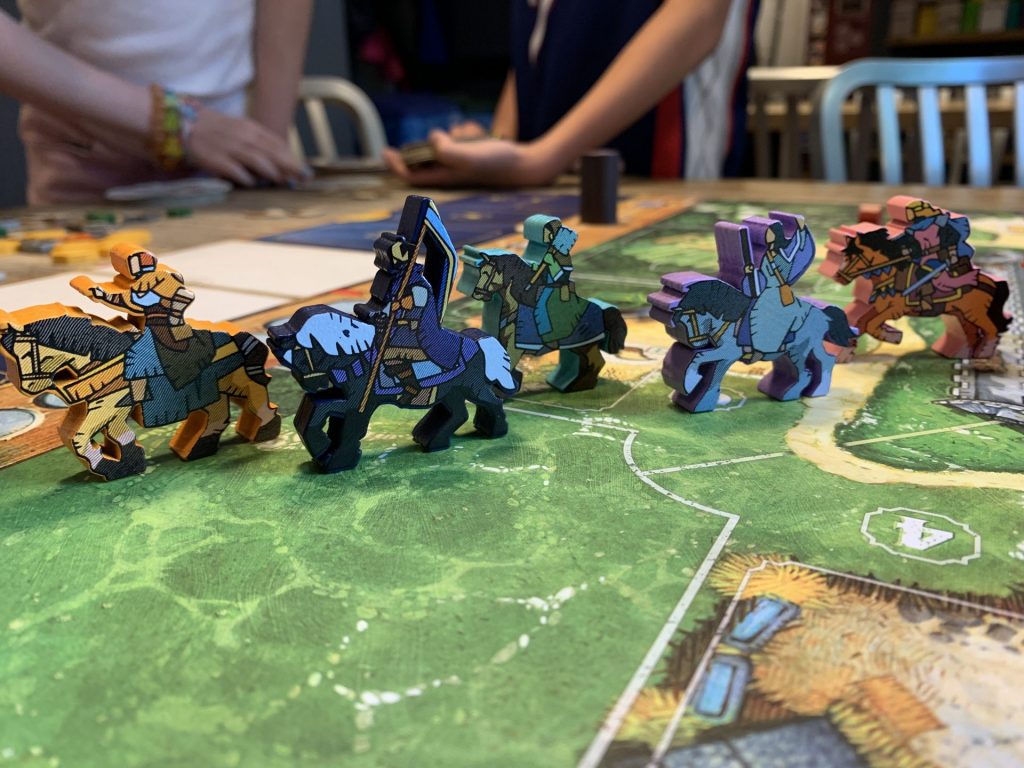
If $70 is more than I’d want to pay for this game, at least I can see that $70 on the table.
A Brief but Important Tangent
Is it Oltree, Oltrée, or Oltréé? The evidence is ambiguous. The box art seems to endorse the presence of two diacritics, with cheeky little birds perched atop both E’s. That said, birds are hardly our most consistent grammar markers. When’s the last time you saw a tilde fly away?
The game is listed on Board Game Geek as Oltréé, which many will consider the definitive answer. The manual tells us that “Oltree”—note, no accents—is the cheer of the Rangers, which is a vote in favor of the otherwise somewhat absurd double-accent that suggests a pronunciation on the order of “Oltray-ay.” It implies the freedom to extend the cheer for as long as you like. Feeling particularly enervated? Oltrééééé, my friend. Oltrééééé.
The evidence for Oltrée is more suppositional and intuitive than anything else. The game’s designers are both French. “Oltrée” is the Frenchest possible rendering. The second bird on the cover has not settled upon his perch, and does not have a body shape that resembles an accent. This is all to say that Oltrée has the least evidentiary backing, but it also feels like the correct answer.
The evidence for Oltree, sans accent, is the most straightforward. It is the only rendering used by the instruction manual. Given the number of minor translation issues throughout the game, I do not find this evidence definitive. Perhaps deciding on the title is intended to be the first step in your adventure.
Who Is It For?
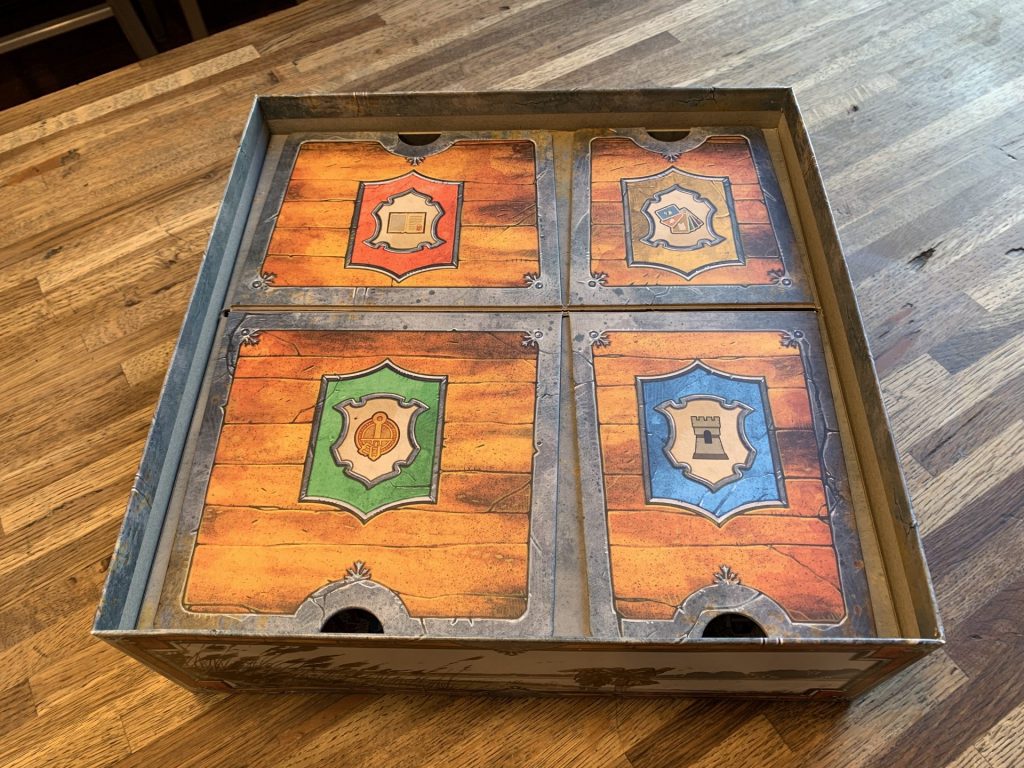
Oltree is a terrific game for people who want to introduce non-gamers of any age to the broad idea of a role playing game. They can dive right into the joys of interactive storytelling without any of the overhead that comes with such a venture. Even as I found myself tiring of the gameplay, I was still charmed by the storytelling.
I wouldn’t recommend Oltree for a table of capital-G Gamers. You’ll find yourselves pretty bored. The replay value for those who think about game mechanics is lower than the Chronicle count. My play group, which consisted of one Gamer, one enthusiastic player, and the girlfriend whom I subject to all this madness, was broadly over it by halfway through our second game.
Oltree is ideally suited to play with children, which I mean as no small compliment. I played recently with a group of four 10 year olds. The teach was a little steep, but they got there. During the game, it seemed like they were bored, but two—including the one I thought was most checked out—asked what the game was called when we were done, hoping the local store carries it.
Oltree is a fascinating continuation of the experiment in bringing the freedom and magic of Dungeons & Dragons style storytelling to more prescriptive games. In my experience, it’s the most successful yet.


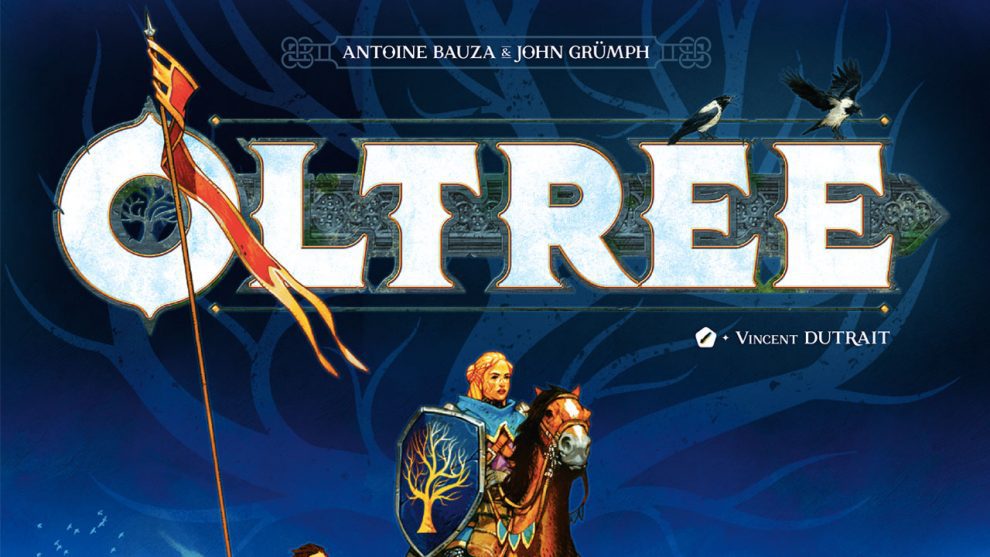


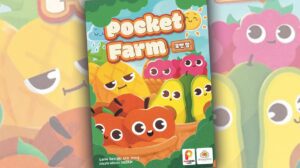

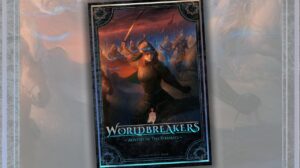




Add Comment